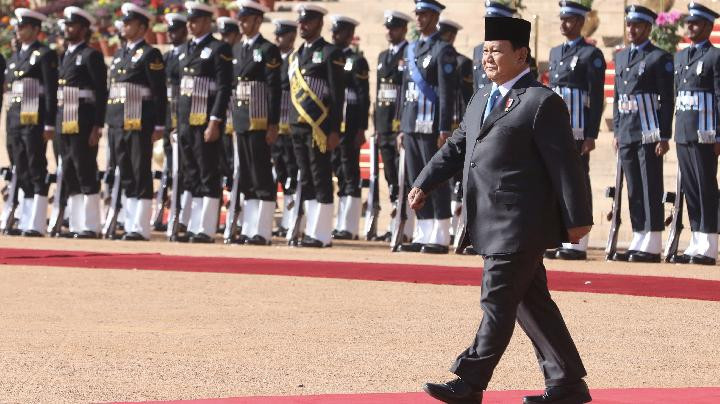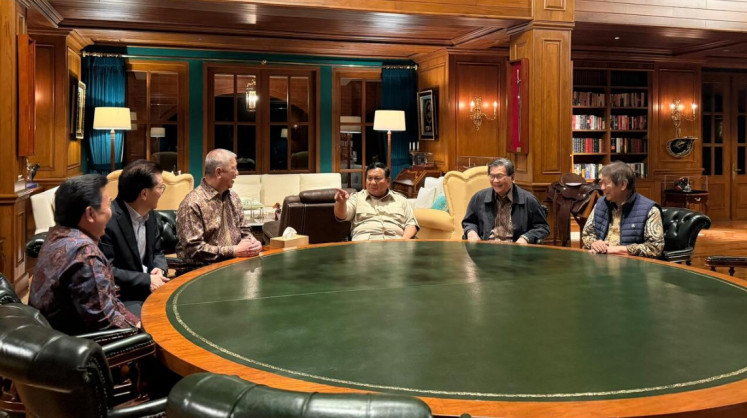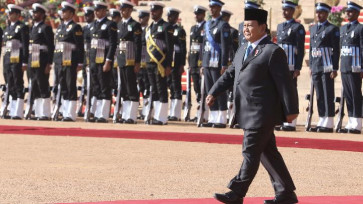Popular Reads
Top Results
Can't find what you're looking for?
View all search resultsPopular Reads
Top Results
Can't find what you're looking for?
View all search resultsPrioritizing mutual inclusive economic development in Indonesia-India relations
While several major Indian business houses have already discovered the promise and power of the Indonesian economy, Indonesian conglomerates have remained hesitant and slow to invest in India.
Change text size
Gift Premium Articles
to Anyone
P
resident Prabowo Subianto is visiting India this week. A highlight of the visit will be his honor as chief guest at India’s annual Republic Day parade on Jan. 26 in the heart of New Delhi. This event is not only a splendid spectacle showcasing the professionalism and prowess of the Indian Armed Forces, but it is also an affirmation of the values of democracy, federalism, liberty, equality, fraternity and secularism enshrined in the constitution.
By giving the constitution primacy over narrow ideological, regional, party or individual interests, India has managed to keep its complex and diverse society largely united and intact. Indonesia, which re-booted its democracy after the collapse of the New Order era in 1998, can imbibe lessons as it also must deal with growing, sometimes conflicting, ambitions of multiple ethnic groups across its sprawling archipelago.
But Indonesia also has lessons in social development that India can learn from. For example, the female labor participation rate in Indonesia is around 54 percent, which is much higher than the 32 percent in India. The country has established a good system of annual inflation-adjusted minimum wages that vary across cities and provinces. These have ensured steadily improving purchasing power, which is critical in a consumer-driven economy.
Indonesia’s good population management program based on public awareness campaigns and providing easy access to and usage of birth control methods, has proved to be immensely beneficial in raising standards of living and reducing extreme poverty levels. Though population growth has slowed in India, decades of policy and implementation failure have resulted in the country overtaking China, despite being only one-third in terms of land size and one-fifth in terms of nominal gross domestic product of the world’s second superpower.
Consequently, although growing steadily India will continue to face challenges in providing basics (education, health care, sanitation, water, electricity, public transportation) and jobs to its vast population.
This is also reflected in the big trade imbalance between the two countries. Indonesia recorded a trade surplus of around US$14.5 billion with India in 2023, its highest with any country that year. Given India’s huge dependence on thermal coal (for cheap electricity generation) and palm oil (for cheap cooking oil) both demand and the trade surplus will continue to increase if left unaddressed. Rectifying this imbalance by importing more from India, can be a smart win-win solution for Indonesia.
Expansion of the newly launched free nutritious meal program and revamping the public healthcare program that is struggling with deficits are priorities for the Prabowo administration. India can and must export greater volumes of food (rice, wheat, sugar, buffalo meat, milk) and medicines to Indonesia. If Indonesia is satisfied with quality and pricing, it can reduce existing costly imports from other countries.



















